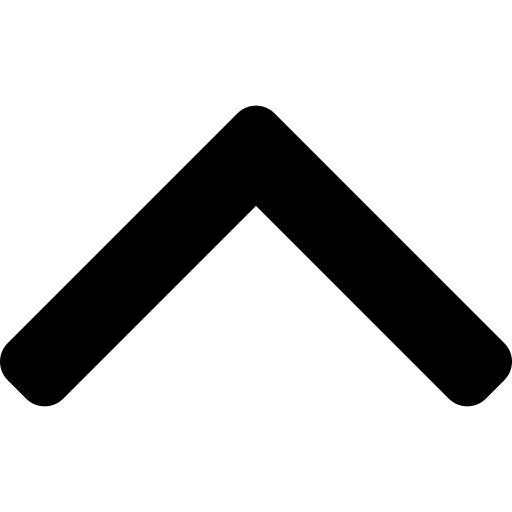What is W3C-checklink?
W3C Link Checker is a tool provided by the W3C that crawls websites to find broken links, redirects, and other link-related issues. The service helps maintain website quality by identifying problematic links that could harm user experience and SEO. It can check both internal and external links, providing detailed reports about link status, redirect chains, and anchor text issues. The tool is particularly useful for maintaining large websites where manual link checking would be impractical.
User Agent String
W3C-checklink/5.0.0
Copy
How to Control W3C-checklink
Block Completely
To prevent W3C-checklink from accessing your entire website, add this to your robots.txt file:
User-agent: W3C-checklink
Disallow: /
Block Specific Directories
To restrict access to certain parts of your site while allowing others:
User-agent: W3C-checklink
Disallow: /admin/
Disallow: /private/
Disallow: /wp-admin/
Allow: /public/
Set Crawl Delay
To slow down the crawl rate (note: not all bots respect this directive):
User-agent: W3C-checklink
Crawl-delay: 10
How to Verify W3C-checklink
Verification Method:
Learn more in the official documentation .
Detection Patterns
Multiple ways to detect W3C-checklink in your application:
Basic Pattern
/W3C\-checklink/i
Strict Pattern
/^W3C\-checklink/5\.0\.0$/
Flexible Pattern
/W3C\-checklink[\s\/]?[\d\.]*?/i
Vendor Match
/.*W3C.*W3C\-checklink/i
Implementation Examples
PHP
Python
JavaScript
.htaccess
Nginx
Copy
function detect_w3c_checklink() {
$user_agent = $_SERVER['HTTP_USER_AGENT'] ?? '';
$pattern = '/W3C\\-checklink/i';
if (preg_match($pattern, $user_agent)) {
// Log the detection
error_log('W3C-checklink detected from IP: ' . $_SERVER['REMOTE_ADDR']);
// Set cache headers
header('Cache-Control: public, max-age=3600');
header('X-Robots-Tag: noarchive');
// Optional: Serve cached version
if (file_exists('cache/' . md5($_SERVER['REQUEST_URI']) . '.html')) {
readfile('cache/' . md5($_SERVER['REQUEST_URI']) . '.html');
exit;
}
return true;
}
return false;
}
Copy
import re
from flask import request, make_response
def detect_w3c_checklink():
user_agent = request.headers.get('User-Agent', '')
pattern = r'W3C-checklink'
if re.search(pattern, user_agent, re.IGNORECASE):
# Create response with caching
response = make_response()
response.headers['Cache-Control'] = 'public, max-age=3600'
response.headers['X-Robots-Tag'] = 'noarchive'
return True
return False
class W3CchecklinkMiddleware:
def __init__(self, get_response):
self.get_response = get_response
def __call__(self, request):
if self.detect_bot(request):
# Handle bot traffic
pass
return self.get_response(request)
Copy
const express = require('express');
const app = express();
// Middleware to detect W3C-checklink
function detectW3Cchecklink(req, res, next) {
const userAgent = req.headers['user-agent'] || '';
const pattern = /W3C-checklink/i;
if (pattern.test(userAgent)) {
// Log bot detection
console.log('W3C-checklink detected from IP:', req.ip);
// Set cache headers
res.set({
'Cache-Control': 'public, max-age=3600',
'X-Robots-Tag': 'noarchive'
});
// Mark request as bot
req.isBot = true;
req.botName = 'W3C-checklink';
}
next();
}
app.use(detectW3Cchecklink);
Copy
RewriteEngine On
RewriteCond %{HTTP_USER_AGENT} W3C\-checklink [NC]
RewriteRule .* - [F,L]
RewriteCond %{HTTP_USER_AGENT} W3C\-checklink [NC]
RewriteCond %{REQUEST_URI} !^/static/
RewriteRule ^(.*)$ /static/$1 [L]
SetEnvIfNoCase User-Agent "W3C\-checklink" is_bot=1
<If "%{HTTP_USER_AGENT} =~ /W3C\-checklink/i">
Header set Cache-Control "public, max-age=3600"
Header set X-Robots-Tag "noarchive"
</If>
Copy
map $http_user_agent $is_w3c_checklink {
default 0;
~*W3C\-checklink 1;
}
server {
if ($is_w3c_checklink) {
return 403;
}
location / {
if ($is_w3c_checklink) {
root /var/www/cached;
try_files $uri $uri.html $uri/index.html @backend;
}
try_files $uri @backend;
}
location @backend {
if ($is_w3c_checklink) {
add_header Cache-Control "public, max-age=3600";
add_header X-Robots-Tag "noarchive";
}
proxy_pass http://backend;
}
}
Should You Block This Bot?
Recommendations based on your website type:
Site Type
Recommendation
Reasoning
E-commerce
Optional
Evaluate based on bandwidth usage vs. benefits
Blog/News
Allow
Increases content reach and discoverability
SaaS Application
Block
No benefit for application interfaces; preserve resources
Documentation
Selective
Allow for public docs, block for internal docs
Corporate Site
Limit
Allow for public pages, block sensitive areas like intranets
Advanced robots.txt Configurations
E-commerce Site Configuration
Copy
User-agent: W3C-checklink
Crawl-delay: 5
Disallow: /cart/
Disallow: /checkout/
Disallow: /my-account/
Disallow: /api/
Disallow: /*?sort=
Disallow: /*?filter=
Disallow: /*&page=
Allow: /products/
Allow: /categories/
Sitemap: https://example.com/sitemap.xml
Publishing/Blog Configuration
Copy
User-agent: W3C-checklink
Crawl-delay: 10
Disallow: /wp-admin/
Disallow: /drafts/
Disallow: /preview/
Disallow: /*?replytocom=
Allow: /
SaaS/Application Configuration
Copy
User-agent: W3C-checklink
Disallow: /app/
Disallow: /api/
Disallow: /dashboard/
Disallow: /settings/
Allow: /
Allow: /pricing/
Allow: /features/
Allow: /docs/
Quick Reference
User Agent Match
W3C-checklink
Robots.txt Name
W3C-checklink
Category
other
Respects robots.txt
Yes


